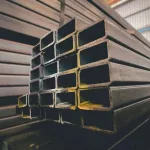Jerusalem, 6 November, 2025 (TPS-IL) — Israel has solidified its role as a global center for semiconductor research and design, according to a report released this week. A study mapping more than 250 companies highlighted a dual role of innovation—multinational R&D hubs working alongside agile local startups in what the study—released by Startup Nation Central (SNC)—called the “Two Engine Paradox.”
“Israel’s semiconductor ecosystem runs on two engines that strengthen each other,” Avi Hasson, CEO of Startup Nation Central, explained to The Press Service of Israel. “Multinationals design strategic silicon here and train top engineers, while startups turn that expertise into focused intellectual property, solving the world’s toughest deep tech challenges. This dual model is why Israel plays a critical role in powering AI, cloud infrastructure, and global computing systems. The challenge now is to translate this technical strength into companies that can scale globally and endure for decades, rather than being sold early.”
SNC is a Tel Aviv-based non-profit that promotes Israeli startups and innovation.
The report found that for every $5 invested in U.S. semiconductor startups, $1 is invested in Israeli companies—a 1:5 ratio, far above the 1:15 average for overall venture capital flows between the two countries. Israel now hosts more than 250 active semiconductor firms employing roughly 45,000 people—about 9% of the country’s tech workforce.
“Investors trust Israeli depth over scale. The chips designed here power AI systems, networking infrastructure, and critical manufacturing tools, all domains where precision matters more than volume,” Hasson explained to TPS-IL. “Israeli rounds are larger because the work is complex, expensive, and defensible. The constant exchange of talent between Intel, Nvidia, Amazon, and startups reinforces credibility and creates repeat founders who know how to build valuable IP.”
The study also found that while the sector has grown 16% over the past decade, it is entering a more mature, capital-intensive phase, moving from rapid startup proliferation toward larger, long-term ventures. This shift is reflected in funding trends: after a record $1.2 billion raised in 2021, annual private investment has stabilized at $400–500 million. Median financing rounds have reached $35 million, two to four times the national tech average, supported by major deals such as Quantum Machines’ $170 million round and Retym’s $75 million financing.
Integration with Global Tech Giants
The report also highlights Israel’s deep integration into the global semiconductor supply chain. Major acquisitions—Intel’s $15.3 billion purchase of Mobileye, Nvidia’s $6.9 billion acquisition of Mellanox, and KLA’s $3.4 billion acquisition of Orbotech—have embedded Israeli technology directly into multinational production and design processes. Major employers such as Intel, with 9,300 local staff, and Nvidia, with 5,500, illustrate the scale of multinational operations anchored in Israel. Unlike Israel’s software sector, semiconductor activity is geographically dispersed, supporting regional growth and workforce diversity.
SNC emphasizes that while this dual model is a source of strength, it also creates challenges for domestic startups. Hasson told TPS-IL that without structural changes, Israel risks remaining an “R&D powerhouse without industrial independence.”
“The ideas and breakthroughs will still emerge here, but the ownership and long-term value will flow abroad,” Hasson warned. “To stay sovereign in a world where chips define strategy and security, Israel must build companies that scale globally, acquire others, and keep control of the technologies that shape its future. This is not just an economic issue; it is a strategic imperative.”
The report also warned that brain drain and high operational costs could undermine Israeli semiconductor independence.
“If many of Israel’s top chip architects and engineers are tied up inside multinational R&D centers, it will limit them founding or joining local startups,” Hasson explained. He called for sustained investment in university research and stronger collaboration between academia and industry to maintain Israel’s competitive edge.
“Without these investments, we risk losing the next generation of innovators who will power the world’s semiconductor breakthroughs,” he said.
The Semiconductor Landscape 2025 report includes an interactive map that segments Israel’s innovation across the full chip value chain, from materials and logic ICs to interconnect, networking, and sensing technologies. SNC said the map is designed to help international investors, corporations, and governments identify partners, acquisition targets, and opportunities to tap into Israel’s advanced semiconductor ecosystem.
“Even as global supply chains shift, Israel remains a reliable source of high-impact semiconductor innovation,” Hasson told TPS-IL. “The challenge for the next decade is turning these innovations into companies that not only survive but lead globally.”































